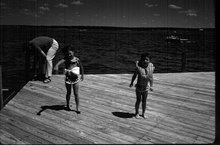
(for Adam, who is also a collector)
“The Passagen-Werk was to be a “materialist philosophy of history,” constructed with “the utmost concreteness” out of historical material itself, the outdated remains of those nineteenth century buildings, technologies, and commodities…But it was precisely Benjamin’s point to bridge the gap between everyday experience and traditional academic concerns, actually to achieve the phenomenological hermeneutics of the profane world which Heidegger only pretended.” Susan Buck-Morss, The Dialectics of Seeing: Walter Benjamin and the Arcades Project
According to the mystic Isaac Luria, when God created the world, vessels were formed to hold the Divine Light. In the words of Rabbi Jeffrey Summit, “This light was meant to radiate out, fill the world and illuminate everything around us. But as God poured the Light into the vessels, the light was so powerful that the vessels couldn’t contain it and with a huge explosion, they shattered and sparks of this divine light became imbedded into the world of matter. These sparks of the divine were now trapped in the material world; God’s presence was hidden and was unable to shine forth. It then became our task to free these holy sparks.”
It is a myth of sorts, and I like to think of Benjamin’s project of assembling mundane objects and aphorisms, or Sudek’s arrangement of yesterday’s lunch, as an example of archaeology in this spirit. Is it the same as trying to redeem the past in a box full of negatives? I don’t know. I see us all as collectors of one kind or another, struggling for meaning, always lost in the “forgetting of being,” as the world hums along with its apple blossoms and unmemorable sandwiches and lovemaking and laughter and loss. The divine light trapped in the objects of the world, the patterns of light trapped in the negative, which is, after all, not ever the thing itself, but its absolute opposite, its absolute absence, made more poignant perhaps, by the evidence, more pristine than mere memory, that it once existed.
These are always the thoughts of the girl half-awake on the G-train plummeting headlong toward Flatbush Avenue. Even at eighteen she already mourns and will always mourn the sight of a couple half hidden beneath umbrellas reflecting the glow of streetlamps in a midnight rain in Ft. Green Park and the haunting sound of a saxophone somewhere beneath an open window on Washington Square; but she does not know that with time she will experience an intense anguish for the transience of such moments, that one day she will come to understand the work of the collector, the furious gathering of the inchoate assemblage toward redemption. When do we begin to search for what is lost, for Being? Perhaps only when we realize that have become separate from it.



